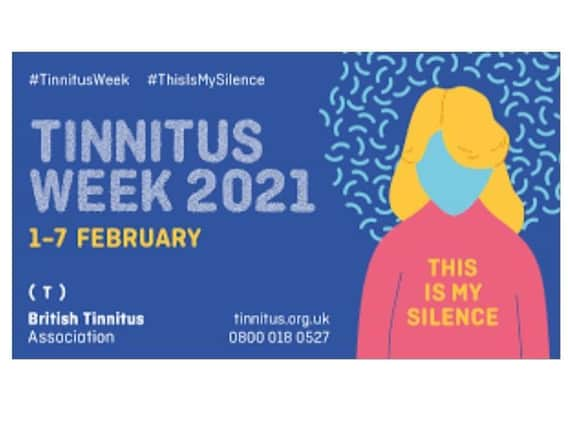How tinnitus reduced Northamptonshire woman to the lowest point of her life...and how she got the help she needed'


A Northamptonshire woman who suffers with tinnitus has revealed how the onset of the condition brought her to the lowest point in her life.
Christina Kennedy first experienced a screeching noise in her head around 18 months ago. She struggled to get it properly diagnosed as tinnitus, while at the same time suffering from panic attacks and mental health issues leading to her having "dark thoughts".
Advertisement
Hide AdAdvertisement
Hide Ad"I was at the lowest I had been in my life. I was at a point where none of my family could leave my side. I kept thinking that I didn't want to be here, but I didn't want to take my life, I just wanted help," she said.
Christina was speaking to this newspaper as part of Tinnitus Week, which runs until Sunday, February 7 and is supported by the British Tinnitus Association.
The association says one in six people with tinnitus have had suicidal thoughts as a result of their condition and nearly half experience depression. It affects around 7.1 million people in the UK.
During lockdown there has been a 22 per cent drop in the number of patients referred for specialist care by their GP and the association is urging people to seek help.
Advertisement
Hide AdAdvertisement
Hide AdThat is certainly a message that Christina agrees with. But Christina, 41, had her own battles at the beginning of her condition.
"I started to feel like I was getting an ear infection. I went to the doctor and they just said put olive oil in it. There was no pain, but I started to hear less and less. It was a muffled, strange sensation," she said.
After returning again, she was given antibiotics and told to wait and it would clear up.
"It was then that I started to get the ringing in my ears. I thought it was going to go but it didn't. Without being aware of it, I was eating or sleeping properly," she said.
Advertisement
Hide AdAdvertisement
Hide AdAgain, she was told to rest and that it would clear. When she later had a panic attack she was told to go to A&E. She was given antibiotics and a nasal spray.
Over that three-week period Christina, who lives in Daventry, saw eight or nine different doctors. They all told her the same thing. It was an infection and would clear.
And then she met a doctor who changed her life and recognised that it was tinnitus. From there came referrals to a specialist, support from the British Tinnitus Association and a recommendation from Warwickshire Hospital to fit a special hearing aid.
"When they suggested a hearing aid, I just laughed - if it makes my tinnitus quieter I would wear it on my forehead!" she said.
Advertisement
Hide AdAdvertisement
Hide AdTinnitus can vary from person to person. For Christina it is a high-pitched screech, a bit like a dentist drill. With the hearing aid it is dramatically reduced and is something between the noise of crickets and a whistle, a bit like wind blowing.
"It's fantastic, and so much better now. I was really bad for three weeks and delicate for about two to three months.
"I was lucky, the level of care I have got from the doctor - I just needed someone to tell me what it was, tell me it was going to be okay, educate me and take the fear away. I was scared at what was going on in my head," she said.
To get advice, visit the British Tinnitus Association's website, or call 0800 0180527.